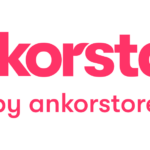

Set up your shop
Create my project

How to conduct market research when starting a business in retail
4 October 2024
Are you planning on starting a business in retail? Before you dive in, it’s crucial to conduct market research. This article will walk you through the process of why and how to conduct market research effectively, ensuring your retail business idea is built on a solid foundation of market insights and data-driven decisions.
The importance of market research in retail business
Market research is the cornerstone of any successful retail venture. When starting a business in retail, before jumping in on your business setup, it is important to take a step back and look at the market to validate or adjust your business idea. Conducting market research helps you analyse customer needs, understand your target market, and make informed decisions related to your business. Let’s explore why market research is essential for your retail business startup and how it can help you in your entrepreneurial journey in retail.
What you will learn from you market research
When you conduct market research for your retail business, you’ll gather essential information on:
- Target market and customers: market research helps you to clearly identify your ideal customers, and learn about their needs and buying habits in retail.
- Retail business model: market research allows you to refine your business idea related to product and service offerings as well as marketing and pricing strategy
- Competitive landscape: market research helps you identify and study your main future competitors, their strengths, and weaknesses in the retail market
- Market environment: market research makes you understand external factors that have or may have an influence on your retail business startup
By conducting comprehensive market research, you’ll collect data that helps you identify business opportunities as well as potential threats affecting your retail project’s long-term sustainability in the competitive retail industry.
10 reasons to conduct in-depth market research for your retail startup
Here are the top 10 reasons why conducting market research is essential when starting a business in retail:
- Understand your target market: Identify customer needs and preferences in the retail sector
- Analyze retail competition: Understand your competitors’ strategies to position your business effectively
- Validate your retail business idea: Ensure your concept meets real market needs
- Make data-driven decisions: Base your retail strategy on concrete research results and market analysis
- Forecast retail sales: Use market data to create realistic financial projections for your retail venture
- Identify retail market trends: Stay ahead of industry developments
- Build credibility with investors: Demonstrate your retail market knowledge to potential backers
- Optimise your product service offering: Tailor your retail products and services to meet customer demands
- Develop effective marketing strategies: Use market insights to create targeted campaigns for your retail business
- Minimize business risks: Identify potential challenges in the retail market before investing heavily
Real-world example: leveraging market research for retail success
Consider Emma, preparing to open a bookstore. She conducted market research to better understand the context in which she was planning to open her shop. She run surveys and focus groups and identified a growing demand for curated book selections and community reading events among book lovers of the town where she was planning to open her shop. This valuable insight from her market research allowed Emma to refine her business idea, product offering, and marketing strategy, giving her retail startup a competitive edge in the local market.
7 key steps to conduct successful market research for your retail business
Follow these essential steps to conduct effective market research when starting your retail business:
Define Your Retail Target Market
- Research potential customers and their characteristics. Our suggestion is to start with demographic data of the area where you are installing your store
- Observe the catchment area where you plan to open your shop and pay attention to foot traffic patterns
- Study existing players in the retail market
- Explore current products or businesses, and make sure there isn’t already another business responding to the same need you plan to meet. If there is already one, think about how you can differentiate yourself or how you can reframe your idea to respond to a need still unmet.
Study Current Retail Market Trends
- Investigate the current retail market situation using industry reports, and pay special attention to latest market changes and profitability of your competitors
- Analyse market saturation levels in your retail niche, this will help you understand if there is room for growth for your future business
- Research upcoming legislative changes that may affect your retail businesses
- Assess the innovativeness of your retail business concept compared to market standards
Thanks to this analysis, you will have a clearer vision of your market. This data will help you identify potential obstacles and opportunities, anticipate future changes and come up with innovative ideas.
Analyse customer demand
- Determine retail market size and potential customer base
- Create typical customer profiles for your retail business based on market segmentation
- Collect data to quantify the budget they typically allocate to similar products or services
- Understand customer buying habits in retail through surveys and interviews
- Collect feedback to measure their current satisfaction with comparable offerings present on the market
- Identify factors driving purchasing decisions among your target customers
An in-depth analysis of your target audience helps you understand how to attract it, convert it and retain it.
Analyze existing retail market offerings
- Make a competitive analysis to identify and study your retail competition
- Research competitors’ locations and impact on your target market
- Examine their product range and pricing strategies
- Analyze their value propositions
- Study their marketing strategies and estimated market share in the retail sector
- Have a look at the online reviews of your competitors to assess customer satisfaction levels with their retail offerings
Thanks to this analysis, you will have additional information to help you target your offer more effectively. This data will help you identify weaknesses in your competitors that could be turned into opportunities for you.
Conduct primary and secondary research
- Use primary research methods like surveys, interviews, and focus groups
- Leverage secondary research sources such as industry reports and government data
- Combine both types of research for a comprehensive understanding of the market
Study the Broader Retail Business Environment
- Consider political factors influencing the retail sector. For example, taxation, upcoming elections that could lead to changes, etc.
- Analyze economic conditions affecting retail in your area
- Research local development plans that could impact your retail business
- Assess technological trends that may have an impact on your business
All these factors may contribute to making the area you are choosing for your store more attractive or less. For example, by researching local development plans, you might discover that there is a plan to create a parking area close to your store which would facilitate the accessibility of your shop, or on the contrary, there might be a plan to build a metro line for which you will have construction works in front of your shop for several months, reducing the visibility and accessibility of your store.
Ensuring Success in Your Retail Market Research
Effective market research for your retail business startup allows you to:
- Verify market need and define your unique retail offering based on customer insights
- Identify opportunities and challenges in the retail landscape
- Optimize your retail business plan based on collected data and market trends
- Make informed strategic choices for your retail startup using data-driven decision-making
- Create realistic financial projections for your retail venture based on market size and demand
- Develop a comprehensive action plan for your retail store launch informed by market research
FAQs
Where can I find examples of retail market research?
Look for market research examples specific to the retail sector online, in business libraries, or through industry associations. Remember to tailor your research to your specific retail business needs.
How can I gather information for my retail market research?
Connect with other business owners, use online retail databases, conduct customer surveys and look into social media trends
What are common mistakes to avoid when conducting market research for a retail startup?
Avoid biased viewpoints, surface-level analysis, ignoring market signals, relying solely on secondary research, and failing to stay informed about retail industry trends.
How long does it typically take to conduct thorough market research for a retail business?
The duration can vary, but expect to spend 2-3 months on comprehensive market research to gather and analyze sufficient data for your retail startup.
What types of questions should I ask in my retail market research surveys?
Include questions about shopping preferences, pricing sensitivity, product interests, and customer pain points in the retail experience.
Related posts "Create my project"

Here are a few pieces of advice to help you understand which are the main steps to follow while deciding the layout of your store.

For entrepreneurs opening a shop, designing a compelling brand identity is crucial to stand out from the competition.
This article explores how thoughtful product selection, marketing strategy and customer experience can boost sales and strengthen brand image.

We’ll take a deep dive into market research, taking a look at primary and secondary sources and how you, as a small retail business owner can conduct your own market research, as well as why you should!

In this article, you’ll find all the information you require to get your business off the ground in this comprehensive guide on how to start a shoe business. In our article below, we provide you with some ideas on how to find success with your shoe store.



